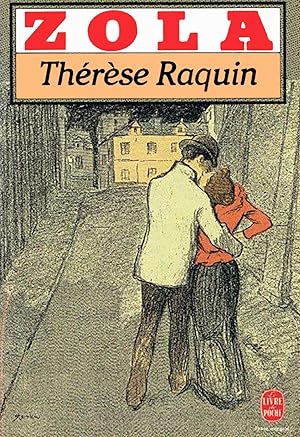
Frequently, patients’ psychotic experiences seem to demonstrate some moral or religious aspect, which mirrors this imposition of Camille's soul. Following their union, the pair develop powerful visual hallucinations of the deceased, as the soul of the brutally murdered Camille ineluctably forces itself into the narrative. But Thérèse and Laurent start to experience unease and fear at the prospect of greater intimacy, which they repress by using maladaptive psychological coping mechanisms. Once Camille is out of the way, marriage is a viable and eagerly awaited prospect. In Thérèse Raquin, the eponymous character and her adulterous lover Laurent plot to murder her husband Camille. Similarly, in psychiatry we endeavour to reduce to and separate the biological, psychological and social causes of illness yet, as Zola found, these so often overlap and interact. In terms of reductionism, Zola, inspired by the natural scientist Claude Bernard, endeavoured to make every chapter into a ‘study of a curious case of physiology’, while the character's ‘soul’ was to be kept out altogether. Similarly, psychiatric case notes often begin with a highly formulaic scientific account, yet on closer inspection digress to read more like a tragic novel. Criticism of Zola's work often focuses on whether he achieves the degree of reductionism and determinism that he allegedly strove for or whether, in fact, his predilections for the gothic and fantastic overshadow the novel's scientific, ‘surgical’ veneer.

After being criticised for vulgarity, in the preface to the second edition of his work Zola justified his portrayal of a gruesome ménage à trois as being analogous to the ‘analytical work that surgeons conduct on cadavers’. Saving Earth Britannica Presents Earth’s To-Do List for the 21st Century.There are several novels that pique our common interest, but Zola's ambition to put a ‘scientific aim above all others’ in his 19th-century novel Thérèse Raquin provides a particularly interesting topic for collective reflection.100 Women Britannica celebrates the centennial of the Nineteenth Amendment, highlighting suffragists and history-making politicians.


Britannica Explains In these videos, Britannica explains a variety of topics and answers frequently asked questions.


 0 kommentar(er)
0 kommentar(er)
